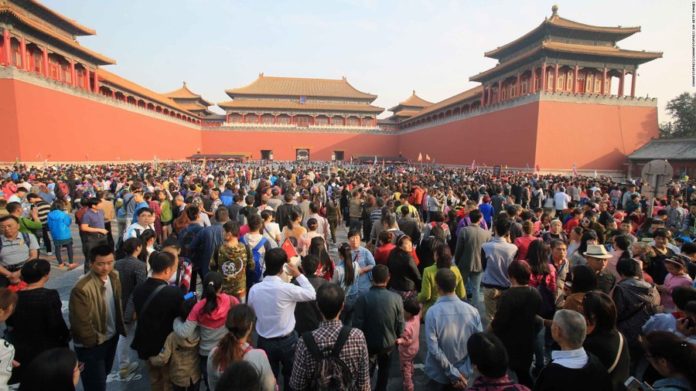Not only are companies investing in China’s real estate market facing solvency issues, but China’s local governments also have huge amounts of debt outstanding as well.
We reported earlier today that the debt obligations related to investments in China’s real estate by corporations like Evergrande, is around a half a trillion dollars. This is what we know now.
We now also know that the local governments in China have trillions of dollars of debt which is not carried in their books. Bloomberg reports:
China’s hidden local government debt has swelled to more than half the size of the economy, according to economists at Goldman Sachs Group Inc., who said the government will need to be flexible in dealing with this as revenue is already under pressure due to a slowdown in land sales.
The total debt of local government financing vehicles rose to about 53 trillion yuan ($8.2 trillion) at the end of last year from 16 trillion yuan in 2013, the economists wrote in a report. That’s equal to about 52% of gross domestic product and is larger than amount of official outstanding government debt.
The LGFVs are a tool for governments to borrow money without it appearing on their balance sheets, but it is seen as the same as a government liability by financial markets.
By comparison, local debt in the US is estimated at $2 trillion at the end of 2020. China’s GDP is also about two-thirds that of the US ($14 trillion vs. 20 trillion for the US). The fact that China’s local hidden debt is four times that of US local debt is startling when considering GDP.
China’s local hidden debt is another reason to be concerned about China’s economy in the near future.
The post China’s Local Governments Have ‘Hidden’ Debts Estimated at $8 Trillion or Nearly Half the Country’s GDP appeared first on The Gateway Pundit.



